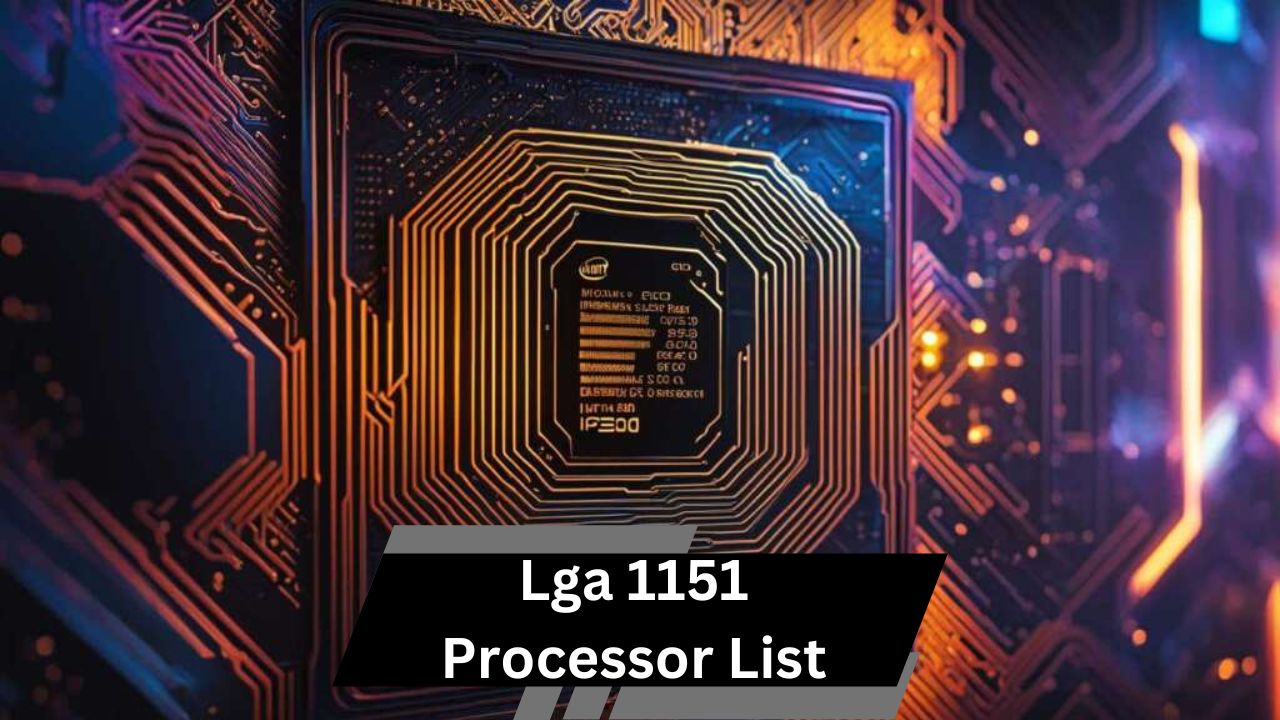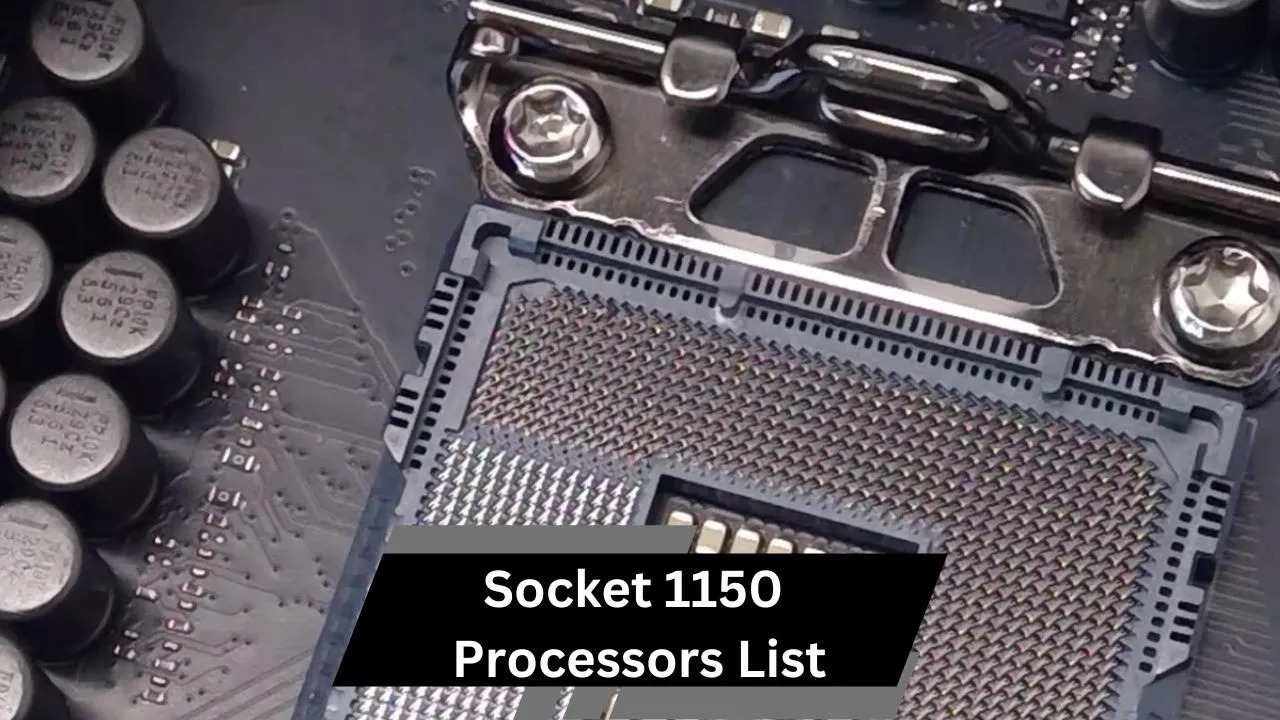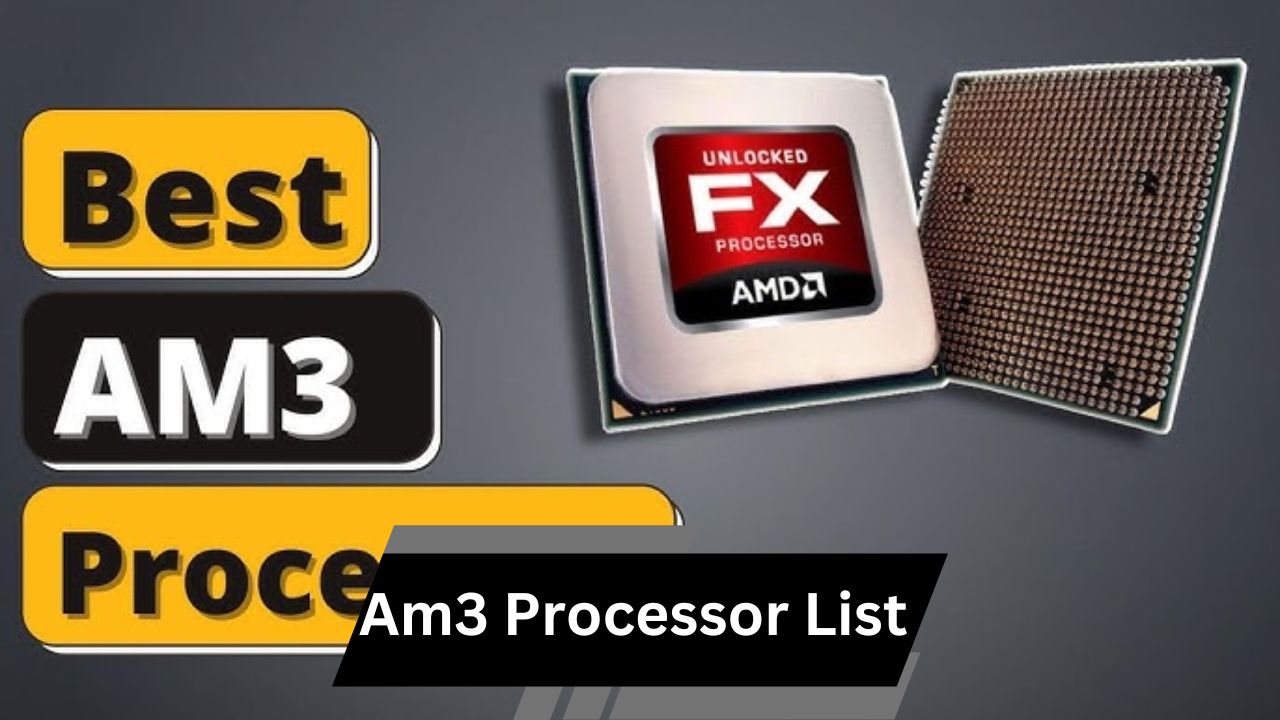The LGA 1151 processor list includes Intel CPUs from 6th to 9th gen, offering options from budget to high-performance, ideal for gaming and content creation.
The LGA 1151 socket, introduced by Intel in 2015, is one of the most widely used and versatile CPU sockets. If you’re planning to build a PC, whether for gaming, work, or general use, understanding the processors that are compatible with the LGA 1151 socket is crucial. This article provides a detailed overview of the LGA 1151 processor list, covering everything from basic information to the best options for various needs.
The LGA 1151 processor list includes Intel’s 6th to 9th generation CPUs, catering to both gamers and professionals. Popular options like the i7-9700K and i5-9600K offer exceptional performance for demanding tasks. This socket supports DDR4 memory for faster data processing. Its versatility makes it a top choice for mid-range to high-performance builds.
Understanding the LGA 1151 Socket:
LGA 1151, also known as Socket H4, is a type of CPU socket used for Intel processors. “LGA” stands for “Land Grid Array,” which means the pins are on the socket rather than on the processor. The number “1151” refers to the 1151 pins on the socket that connect with the processor.
Introduced as a successor to the LGA 1150 socket, the LGA 1151 has been used in several generations of Intel processors, making it a versatile choice for many PC builders. It was eventually succeeded by the LGA 1200 socket, but the LGA 1151 remains popular due to its wide range of compatible processors and motherboards.
Generations of LGA 1151 Processors:
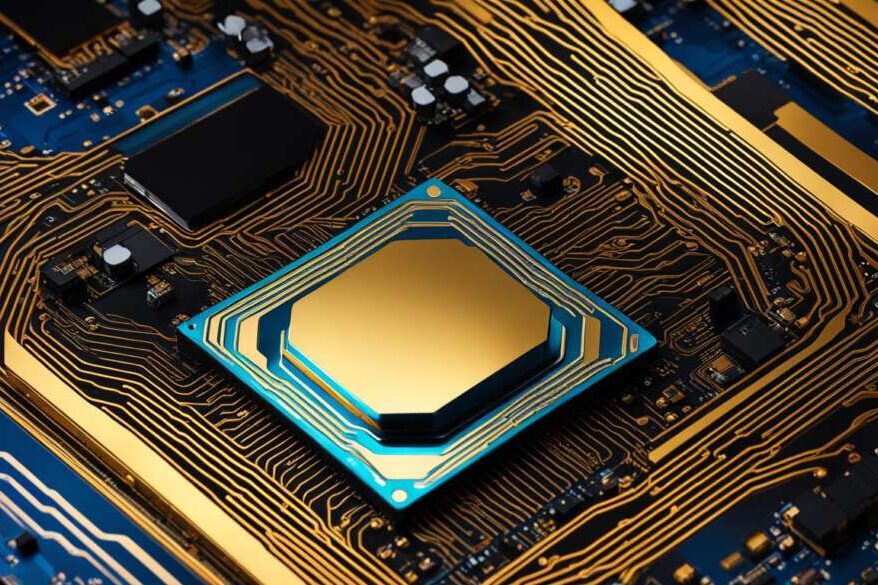
The LGA 1151 socket supports two main generations of Intel processors: the 6th and 7th generations (Skylake and Kaby Lake) and the 8th and 9th generations (Coffee Lake and Coffee Lake Refresh). Each generation brings improvements in performance, power efficiency, and features.
6th and 7th Generation (Skylake and Kaby Lake):
- Intel Core i7-6700K: This quad-core processor features Hyper-Threading, allowing it to handle eight threads at once. It’s known for its strong performance in both gaming and content creation tasks. It operates at a base clock speed of 4.0 GHz, which can be boosted up to 4.2 GHz.
- Intel Core i5-7600K: A popular choice for gamers, this quad-core CPU lacks Hyper-Threading but offers high single-thread performance. With a base clock speed of 3.8 GHz and the ability to boost up to 4.2 GHz, it’s well-suited for gaming and general use.
- Intel Core i3-7100: This dual-core processor includes Hyper-Threading, allowing it to handle four threads. It operates at a base clock speed of 3.9 GHz, making it a good choice for budget builds or everyday computing tasks.
8th and 9th Generation (Coffee Lake and Coffee Lake Refresh):
- Intel Core i9-9900K: This is one of the most powerful processors available for the LGA 1151 socket, featuring 8 cores and 16 threads. With a base clock speed of 3.6 GHz and a boost clock of up to 5.0 GHz, it’s ideal for high-end gaming, content creation, and professional workloads.
- Intel Core i7-8700K: A 6-core, 12-thread processor, the i7-8700K offers a great balance between performance and price. It operates at a base clock speed of 3.7 GHz and can boost up to 4.7 GHz, making it a favorite among gamers and streamers who need a powerful yet affordable CPU.
- Intel Core i5-9600K: Known for its overclocking potential, this 6-core processor is an excellent choice for gaming enthusiasts. It runs at a base clock speed of 3.7 GHz and can boost up to 4.6 GHz, providing ample power for modern games.
- Intel Core i3-9100F: This budget-friendly quad-core CPU lacks integrated graphics, making it a cost-effective option for entry-level gaming systems. It runs at a base clock speed of 3.6 GHz and can boost up to 4.2 GHz, offering solid performance for its price.
Also read: Lga 1150 Processor List – A Comprehensive Review!
Performance Comparison:
When comparing the performance of these processors, it’s clear that the 8th and 9th generation CPUs generally offer better multi-threaded performance and efficiency. This is due to the increased number of cores and threads in these later generations, which make them better suited for tasks like video editing, 3D rendering, and multitasking.
For instance, the Intel Core i9-9900K, with its 8 cores and 16 threads, outperforms older models in multi-core tasks. On the other hand, the Intel Core i5-7600K, with its strong single-core performance, remains a solid choice for gaming, where single-thread performance often matters more.
Best LGA 1151 Processors for Gaming:
For gamers, choosing the right processor is essential to ensure smooth gameplay and high frame rates. The Intel Core i7-8700K and Intel Core i5-9600K are two standout options for gaming with the LGA 1151 socket.
- Intel Core i7-8700K: With 6 cores and 12 threads, this processor provides excellent performance in both gaming and streaming. It’s capable of handling demanding games while also managing background tasks like streaming or recording gameplay.
- Intel Core i5-9600K: This 6-core processor is popular among gaming enthusiasts for its high clock speeds and overclocking potential. It delivers great performance in games that rely on strong single-thread performance, and its overclocking capabilities allow users to push it even further.
For those who want the best possible performance and are willing to invest more, the Intel Core i9-9900K is the ultimate choice. Its 8 cores and 16 threads make it future-proof for upcoming game titles and demanding applications.
Best LGA 1151 Processors for Content Creation:
Content creation tasks like video editing, 3D modeling, and rendering require processors with multiple cores and threads to handle complex workloads efficiently. The Intel Core i9-9900K and Intel Core i7-8700K are top choices for these tasks.
- Intel Core i9-9900K: With its 8 cores and 16 threads, this processor excels in multi-threaded workloads, making it ideal for professional content creators who need to handle demanding applications. Its high boost clock speeds also ensure quick processing times.
- Intel Core i7-8700K: This processor is a great choice for content creators who want high performance without the premium price tag of the i9-9900K. It offers 6 cores and 12 threads, which are more than capable of handling tasks like video editing and graphic design.
Budget-Friendly LGA 1151 Processors:
If you’re building a PC on a budget, there are still plenty of good options within the LGA 1151 processor list. The Intel Core i3-9100F and Intel Core i3-7100 are two budget-friendly CPUs that provide good performance for their price.
- Intel Core i3-9100F: This quad-core processor lacks integrated graphics, but it offers solid performance for entry-level gaming and everyday tasks. It’s an excellent choice for those who want a capable CPU without spending too much.
- Intel Core i3-7100: A dual-core processor with Hyper-Threading, the i3-7100 is suitable for budget builds that require decent performance for general computing tasks. It’s also a good choice for basic gaming setups.
Compatibility and Upgradability:
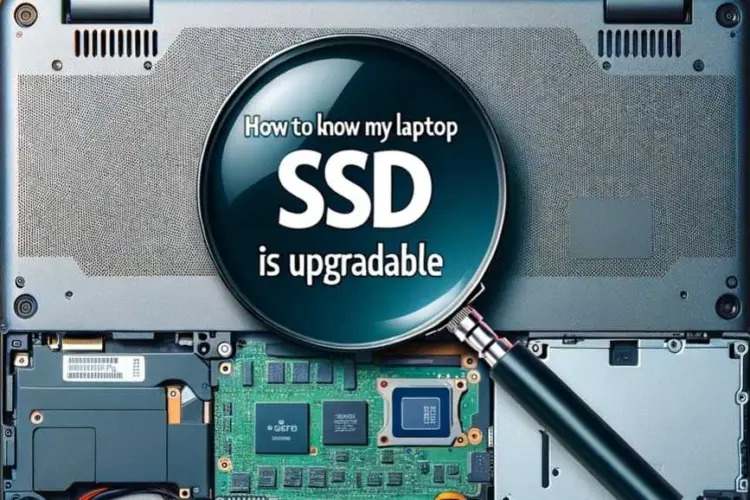
One of the advantages of the LGA 1151 socket is its compatibility with multiple CPU generations. However, it’s important to note that 6th and 7th generation processors (Skylake and Kaby Lake) require motherboards with Intel 100 or 200 series chipsets, while 8th and 9th generation processors (Coffee Lake and Coffee Lake Refresh) need motherboards with Intel 300 series chipsets.
This means that upgrading your processor within the same generation is straightforward, but switching between different generations might require a motherboard upgrade. If you’re planning to upgrade in the future, it’s a good idea to consider the chipset compatibility before making your purchase.
FAQ’s:
1. What is the LGA 1151 socket?
The LGA 1151 socket, also known as Socket H4, is a type of CPU socket used for Intel processors, featuring 1151 pins for connectivity.
2. Which generations of Intel processors are compatible with the LGA 1151 socket?
The LGA 1151 socket supports Intel’s 6th and 7th generation processors (Skylake and Kaby Lake) and 8th and 9th generation processors (Coffee Lake and Coffee Lake Refresh).
3. What are some of the best LGA 1151 processors for gaming?
The Intel Core i7-8700K and Intel Core i5-9600K are top choices for gaming, offering strong performance and overclocking capabilities.
4. Can I upgrade my LGA 1151 processor to a newer generation without changing the motherboard?
Upgrading within the same generation is possible, but switching between 6th/7th and 8th/9th generations may require a motherboard upgrade due to chipset compatibility.
5. Are there budget-friendly processors available for the LGA 1151 socket?
Yes, processors like the Intel Core i3-9100F and Intel Core i3-7100 offer good performance for their price, making them suitable for budget builds.
Conclusion:
The LGA 1151 socket offers a wide range of processors, from budget-friendly options to high-performance models suitable for gaming and content creation. When choosing the right processor, consider your specific needs, such as whether you prioritize gaming, content creation, or everyday computing. Your budget will also play a significant role in determining the best processor for your build.

